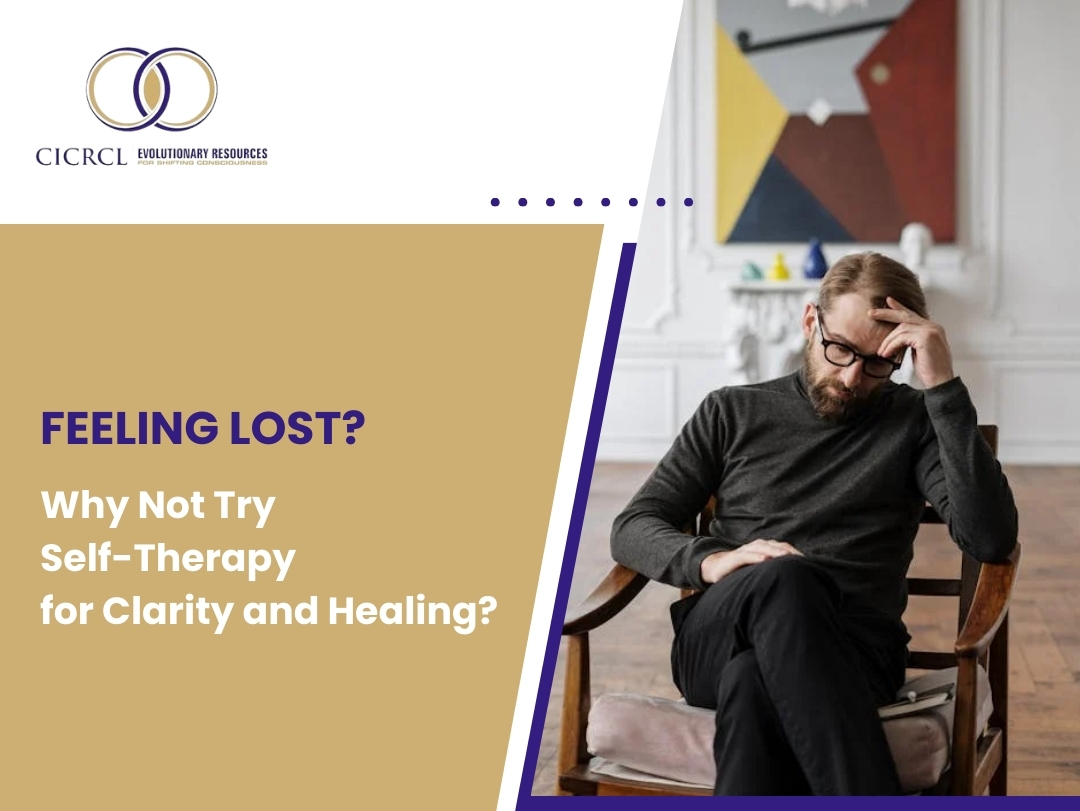Feeling Lost? Why Not Try Self-Therapy for Clarity and Healing?
Do you yearn for inner peace and healing but find yourself unsure of where to start? If so, you’re not alone. In today’s fast-paced world, many of us struggle with our mental and emotional well-being. The pressures of everyday life can weigh heavily on our shoulders, leading to stress, anxiety, and even depression. But what if I told you that there’s a powerful tool right at your fingertips, one that can help you navigate the challenges of life with greater ease and resilience? Welcome to the world of self-therapy – a journey of self-discovery, healing, and personal growth.
In this comprehensive guide, we’ll explore the secrets of self-therapy and uncover insider tips for finding inner peace and healing. Whether you’re struggling with depression, or anxiety, or simply seeking to enhance your overall well-being, these self-therapy techniques can empower you to take control of your mental health and live a more fulfilling life.
What is Self-Therapy?
Self-therapy, also known as self-care therapy or self-help therapy, is a powerful approach to healing that puts you in the driver’s seat of your own mental and emotional well-being. Unlike traditional therapy, which typically involves working with a licensed therapist, self-therapy is a self-directed practice that you can tailor to your own needs and preferences.
At its core, self-therapy is about cultivating self-awareness, self-compassion, and self-empowerment. It involves learning to tune into your thoughts, feelings, and behaviors, and developing practical strategies for managing them effectively. From mindfulness and meditation to journaling and creative expression, there are countless self-therapy techniques to explore, each offering its own unique benefits.
Best Self-Therapy Techniques:
- Mindfulness Meditation: One of the most powerful tools in the self-therapy toolkit, mindfulness meditation can help you cultivate a greater sense of presence and inner peace. By simply observing your thoughts and emotions without judgment, you can learn to respond to life’s challenges with greater clarity and resilience.
- Journaling: Writing can be a therapeutic outlet for processing emotions, gaining insight into your thoughts and behaviors, and setting intentions for personal growth. Try setting aside a few minutes each day to jot down your thoughts, feelings, and reflections – you may be surprised at what you discover.
- Self-Compassion Practices: Learning to treat yourself with kindness and compassion is essential for self-therapy. Practice self-compassion by offering yourself the same warmth and understanding that you would offer to a dear friend in times of need.
- Creative Expression: Engaging in creative activities such as art, music, or dance can be incredibly therapeutic. These forms of self-expression allow you to tap into your emotions and express yourself in ways that words alone cannot.
- Physical Self-Care: Don’t underestimate the importance of physical self-care in self-therapy. Make it a priority to engage in body-nourishing activities like consistent exercise, a healthy diet, and enough sleep. Maintaining your physical health can make a big difference in your mental wellness.

Secrets to Inner Peace and Healing:
Now that we’ve explored some of the best self-therapy techniques, let’s dive deeper into the secrets of finding inner peace and healing.
- Cultivate Self-Awareness: The first step in self-therapy is becoming aware of your thoughts, feelings, and behaviors. Pay attention to the patterns and triggers that impact your mental health, and strive to cultivate a greater sense of mindfulness in your daily life.
- Practice Self-Compassion: On this path, treat yourself with kindness. Remember that healing takes time, and it’s okay to not have all the answers right away. Show yourself the same consideration and compassion that you would show someone you care about.
- Set Boundaries: To safeguard your mental and emotional health, you must learn to create limits. Identify the people, situations, or activities that drain your energy or trigger negative emotions, and establish clear boundaries to safeguard your peace of mind. Remember, it’s okay to say no to things that don’t align with your values or priorities.
- Practice Gratitude: Cultivating an attitude of gratitude can have a profound impact on your overall well-being. Take time each day to reflect on the things you’re thankful for, whether it’s the beauty of nature, the support of loved ones, or simply the gift of being alive. Practicing gratitude can help shift your focus from what’s lacking to what’s abundant in your life.
- Seek Support: While self-therapy is primarily a solo journey, it’s important to remember that you don’t have to go it alone. Reach out to trusted friends, family members, or support groups for guidance, encouragement, and companionship along the way. Sometimes, sharing your struggles with others can provide valuable insights perspectives
- Embrace Imperfection: Perfectionism is the enemy of progress in self-therapy. Instead of striving for perfection, embrace imperfection as a natural part of the human experience. Allow yourself to make mistakes, learn from them, and grow stronger in the process.
- Practice Self-Reflection: Regular self-reflection is key to personal growth and development. Set aside time to reflect on your progress in self-therapy, celebrate your successes, and identify areas for improvement. Consider keeping a self-reflection journal where you can track your thoughts, feelings, and insights over time.
- Stay Consistent: Like any skill, self-therapy requires consistent practice to yield meaningful results. Make self-care a priority in your daily routine, even when life gets busy or challenging. Remember that small, consistent actions over time can lead to profound transformation.
- Be Patient: Healing is a journey, not a destination, and it’s important to be patient with yourself along the way. Rome wasn’t built in a day, and neither is inner peace and healing. Trust in the process, stay committed to your self-therapy practice, and have faith that positive change is possible.
Connect with our All time Running Book
“What Is Your PsyQ? Increasing Your Psychological Intelligence Through Self-Therapy”
Are your thoughts and feelings getting to you too much?Do you long for a sense of inner peace and clarity, but struggle to find effective strategies for achieving it? If so, this book is for you. Written with empathy, insight, and practicality, “What Is Your PsyQ?” is made to meet you where you are in your journey toward self-therapy, providing practical methods and insight to help you reach your full potential.
Why “What Is Your PsyQ?” is the Best Book for Self-Therapy:
- Comprehensive Approach: Unlike other self-help books that focus on one specific aspect of mental health, “What Is Your PsyQ?” takes a holistic approach to self-therapy. Drawing from a diverse range of psychological principles and practices, this book offers a comprehensive toolkit for enhancing your psychological intelligence and well-being.
- Actionable Insights: With practical exercises, journaling prompts, and real-life examples, “What Is Your PsyQ?” gives you the methods and resources you need to apply theory to real-world situations. Whether you’re struggling with anxiety, depression, or simply seeking greater self-awareness, each chapter offers actionable insights that you can start applying to your life today.
- Empowering Perspective: “What Is Your PsyQ?” gives you the ability to write your own narrative. By helping you cultivate self-awareness, self-compassion, and self-empowerment, this book enables you to take control of your mental and emotional well-being, rather than feeling like a passive bystander to your own life.
Ready to take the first step on your journey to greater mental well-being? Order your copy of “What Is Your PsyQ?” today and start unlocking your true potential.
Conclusion:
In conclusion, self-therapy is a powerful tool for finding inner peace and healing in the midst of life’s challenges. By cultivating self-awareness, practicing self-compassion, and embracing self-care techniques, you can empower yourself to take control of your mental and emotional well-being.
Remember, self-therapy is a deeply personal journey, and there’s no one-size-fits-all approach. Explore different techniques, listen to your intuition, and find what works best for you. Above all, remember to treat yourself with kindness as you go. You are worthy of love, compassion, and healing, and your journey to inner peace starts with a single step.
So, take that step today. Embrace the power of self-therapy, unlock the secrets of inner peace and healing, and embark on a journey of self-discovery that will transform your life from the inside out.
The road may be long and winding, but with self-therapy as your guide, the possibilities are endless.



